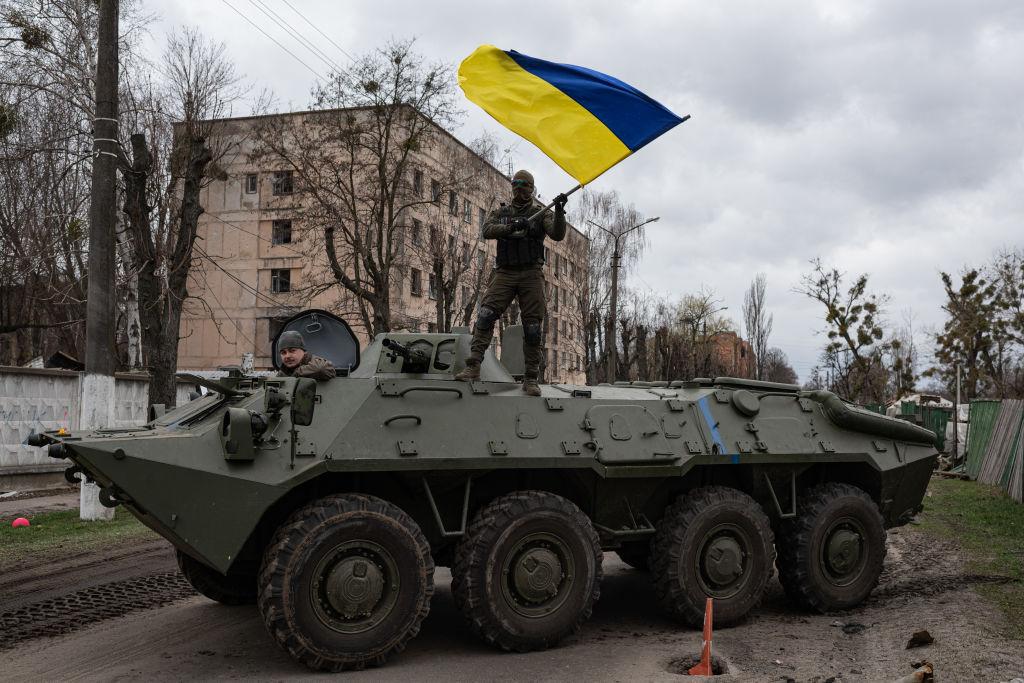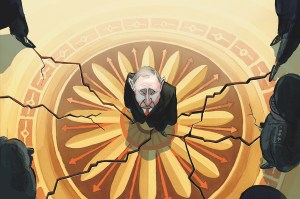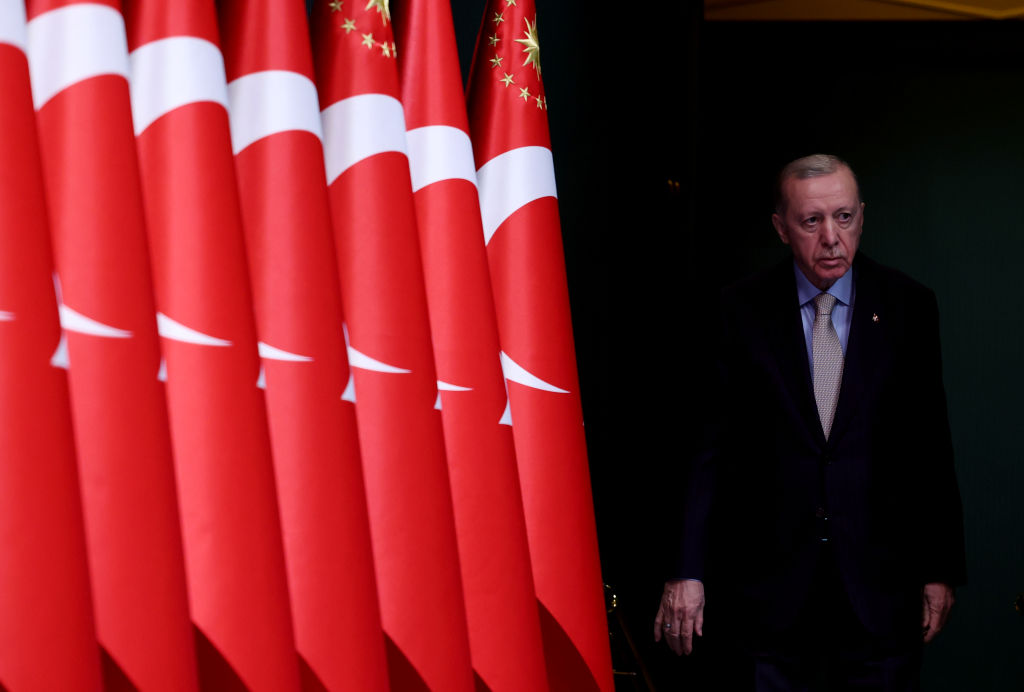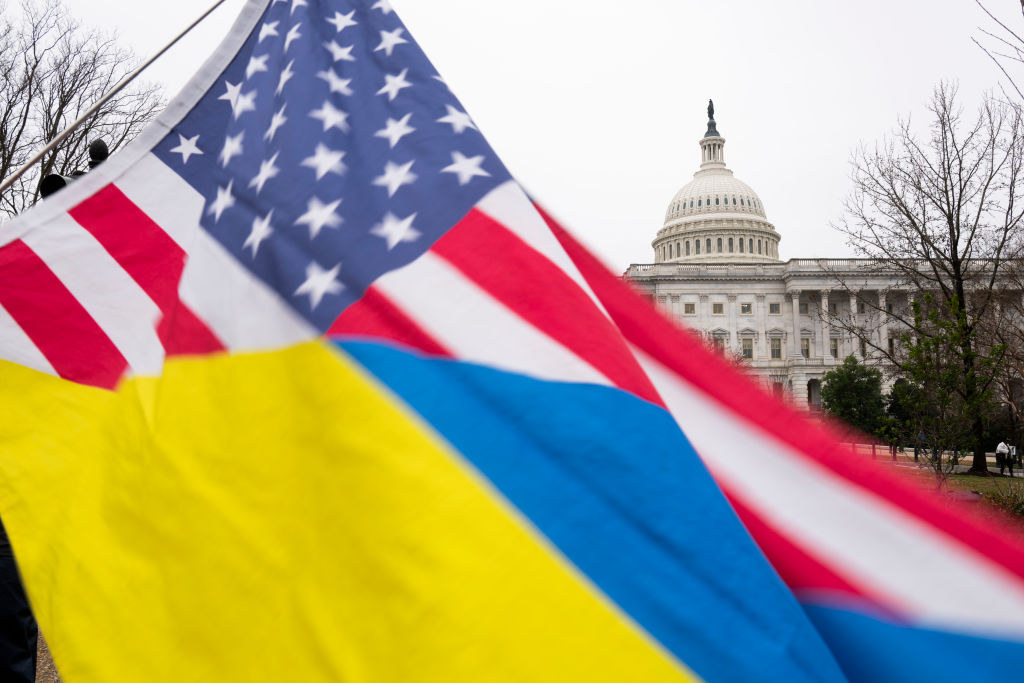War has a stronger appetite than any of the countries that wage it. Aggressors, defenders, small states and superpowers are all on the menu. Take the war in Ukraine, for example.
The war really started in 2014 when Russia annexed Crimea and fomented secession in the Donbas. America slapped Moscow back with sanctions. This was virtue-signaling. Sanctions might sting Vladimir Putin and his cronies, but how could they change Russia’s interest in Crimea? The peninsula is Russia’s gateway to the Mediterranean. Sanctions can’t alter geography.
Ukraine had a friend in Vice President Joe Biden, and it had his son Hunter on a Ukrainian oil company’s payroll. Then disaster struck — the Bidens were gone and Donald Trump became president. Perhaps coincidentally, the Clinton campaign and its media allies depicted Trump as a stooge of Putin. The Steele dossier’s lies, the FBI’s investigation of Trump and his campaign even after he took office and Trump’s furious reaction to the investigation hobbled the new administration and helped Democrats take both houses of Congress in 2018.
A year later Democrats impeached Donald Trump for slowing down delivery to Ukraine of some $391 billion in military aid that Congress had approved. (The Trump administration did not, it should be noted, try to cut off aid — in fact it went beyond the Obama administration in offering Ukraine lethal weaponry.) Earlier in 2019, Ukraine elected its own new president, Volodymyr Zelensky. He had campaigned on a promise to negotiate an end to the conflict with Russia. He was something of a peace candidate.
The Senate acquitted Trump in 2020, but the Covid crisis and its damage to the US economy cleared the way to the White House for Joe Biden. With Biden in power, Ukrainians seemed less inclined to seek a settlement with Russia. They also started to enjoy more battlefield success, and by mid-2021 the secessionists in Donetsk and Luhansk were in trouble. Would Russia write them off as a sunk cost?
Instead, Russia invaded Ukraine. The proxy war became a direct conflict. The US and Western Europe responded with more sanctions, of course, but also more military aid to Ukraine. The West wouldn’t abandon its clients, either. Russia didn’t succeed in immediately destroying Ukraine. But the war is well into its second year now, and Moscow shows no sign of relenting. Russia has a greater population and far more artillery than its victim. In a war of attrition, Ukraine appears doomed.
Maybe Russian resolve will fail — perhaps a coup will bring an antiwar leader to power in the Kremlin. That’s wishing for a miracle. The West can send advanced weaponry. The prospect of such arms dislodging Russian forces from the Donbas, however, let alone Crimea, looks slim.
What Ukraine may want most from the West is what Putin gave Donetsk and Luhansk: a war expanded to the point of being winnable. If Ukraine can beat the breakaway republics, Russia can beat Ukraine. But if Russia can beat Ukraine, the West can beat Russia. Only that way lies armageddon.
Despite his sympathy for Ukraine, Biden has resisted escalation, with the result that while Zelensky does receive more and more military aid, it only comes once it’s clear that earlier aid has failed to change the war’s bottom line. How many rounds of this can the West play before Ukraine’s manpower is exhausted? At what point does the final choice between wider war and Ukrainian defeat become too obvious for even the most ardent Western optimist to ignore?
Biden may be lucky enough to lose next year’s election before he has to answer. Trump says the war would never have happened on his watch, and perhaps he’s right. But if he does become the GOP nominee and beat Biden next year, he’ll be faced with an even greater challenge than the one Biden confronted when choosing to leave Afghanistan. America could quickly end the war by withdrawing support from Ukraine. That, however, would require not only a president willing to do so but also a Congress determined to shut off the spigot. It would amount to a revolutionary change in US policy — an acknowledgment that we cannot dispense justice to the whole world.
What’s more likely is prolonged denial of the kind that America’s leadership class has indulged in since the end of the Cold War. Victory in Ukraine, like the defeat of the Taliban in Afghanistan and the democratization of China through free trade, will always be just around the corner.
Grim as this is for Ukraine, Russia’s prize for winning will be a new Cold War with the West. China, Iran and the developing world give Russia plenty of non-Western trading partners. But they have ambitions, too. Russia couldn’t accept an American order that meant the sacrifice of its Mediterranean access and great-power status. The post-American order will have perils of its own.
The West both loves and hates Russia — loves the possibility of Russia becoming Western, hates Russia for failing to realize that possibility. The rest of the world views Russia in terms of power. And dismembering Ukraine will not make Russia a greater economic, demographic, or even military power.
War has a logic of its own. That logic destroyed the European order of the nineteenth century in the first half of the twentieth and established the US and USSR as the dominant powers of the second half. The series of fruitless and endless wars America has pursued since the Soviet Union collapsed has hastened the day our own hegemony ends. We have choices, but they are hard and ugly ones we prefer to deny.
This article is taken from The Spectator’s July 2023 World edition.

























